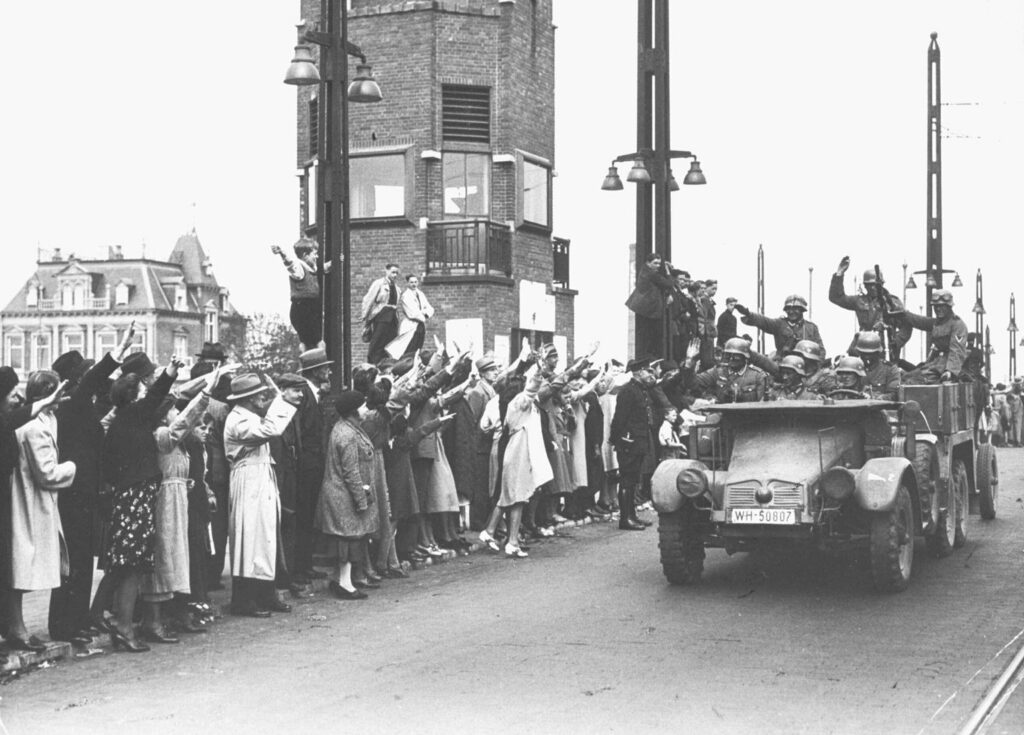From the beginning of January, the war archive in The Netherlands with records of approximately 425,000 Dutch citizens suspected of collaborating with the Nazi-German occupiers during Second World War and the Holocaust, is now open and searchable online, 80 years after the end of the war.
"The website is extremely busy," said a spokesperson for the National Archives, which manages the extensive war archive. "This morning, we had a huge queue of people wanting to access the reservation module."
The plan was for the paper archive to become fully public from 2 January and gradually digitised. The 'War Before the Judge' project is responsible for digitising the over 30 million pages of the war archive. It aimed to allow anyone to browse the archive from home. So far, the first 8 million pages have been scanned. All documents are expected to be digitized by 2027.
All scanned files from the archive were set to be made available online, giving users access to dossiers of suspects, which also includes their victims and witnesses.
However, following a warning from the Dutch Data Protection Authority, the decision was made in December to postpone the full release and instead publish only the list of names. No date has been set for publication of those dossiers but people with a research interest - including descendants, journalists and historians - can make a request to consult them at the Dutch National Archives in The Hague.
The archive contains files on war criminals, the approximately 20,000 Dutch people who enlisted in German armed forces, and alleged members of the National Socialist Movement (NSB) - the Dutch Nazi party. It also contains the names of people who were found to be innocent, because the archive comprises files from the Special Jurisdiction, which from 1944 investigated suspected collaborators.
76,000 convictions
During The Second World War, parts of the Dutch population collaborated with the occupiers after the Dutch Government fled to London.
In The Netherlands alone, 75 % of Jews (102,000 people) were deported to death camps in Eastern Europe as a result of cooperation of local police and the failure of state institutions.
The Dutch Government in exile developed laws to prosecute those suspected collaborators after the war.
Around 16,000 people were convicted by special courts of justice which had the authority to impose life sentences or the death penalty. Some 50,000 people were convicted by tribunals which could impose sentences of up to 10 years internment. Around 90,000 cases were settled administratively, often involving disenfranchisement and supervision.
The majority of cases (329,000) were settled without prosecution and dismissed due to lack of evidence, death of the suspect, or other reasons.
After most cases were handled, the special criminal jurisdiction concluded in the early 1950s, and a decision was made to merge all separate archives. The new archive was named the Central Archives of Special Criminal Jurisdiction (CABR). For a long time, the CABR was under the Ministry of Justice, which was responsible for access requests until 2000, when the archive was transferred to the National Archives.
Until now, the archives were only open to researchers and those directly concerned and their descendants, and the opening of the archives and eventually making it searchable and accessible for the wider public is not uncontroversial in The Netherlands.
Relatives of suspected collaborators are concerned about what the archives might disclose, claiming they want their privacy protected. However, historians see the opening of the archives as an important step in coming to terms with The Netherland's painful past and the memory of the Holocaust.
A spokesperson could not confirm the exact number of CABR requests received by the National Archives so far, but noted that the reading room would be very busy in the coming weeks. Recently, the number of available spots in the reading room was increased from 108 to 140, with 61 reserved for people who have requested CABR documents.
In recent years, other steps were taken in that direction in The Netherlands. In 2023, the Dutch Holocaust Memorial of Names was inaugurated in Amsterdam to commemorate the memory of the 102,000 Dutch victims of the Holocaust, and in March 2024, the National Holocaust Museum was opened in Amsterdam.
The register of suspects from the Central Archives of Special Criminal Jurisdiction (CABR) can now be accessed via the website.

